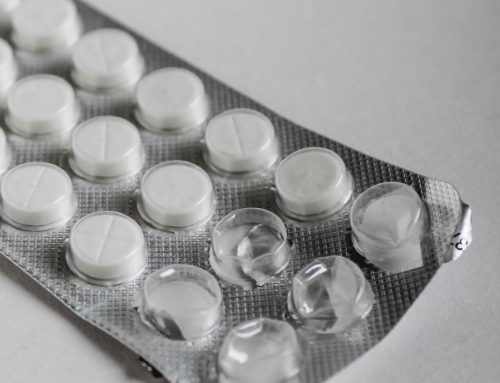It’s the sunshine vitamin we all need for healthy bones and a strong immune system. But if you live in North America or cold climates, you might not get enough year-round. Combining sunshine, food sources and supplementation can help you get the benefits of vitamin D no matter where you live.
What is Vitamin D?
Vitamin D is an essential fat soluble nutrient. You can get most of what you need through exposure of skin to sunlight. But if you live in an area where there are long winters and cold climates, that might only be true for half the year.
The other places you can get vitamin D include food sources and supplementation. There aren’t many foods that naturally contain vitamin D besides some animal products such as fish and eggs. Some products are fortified with vitamin D, like milk and some cereals for example, though this is usually in very small amounts.
Outside of being in the sunshine, supplementing with vitamin D is the easiest way to ensure your body has enough of it. There are two main sources of supplemental vitamin D that you might see in stores, D3 and D2.
Vitamin D3 is the same kind of D your skin makes from the sun. It’s superior for the human body because it’s biologically active. Comparatively, D2 is the form of vitamin D made in plants, such as mushrooms. It’s also most commonly the form used in fortified milk and cereals because it’s cheaper. The D2 form takes more effort from your body to convert and absorb than D3 does.
In any case, to ensure you get the full benefits of vitamin D, it’s best to supplement with vitamin D3.
How Much Do I Need?
The recommended amount of vitamin D for adults is 600-800 IU per day according to the USA Department of Health1. But if you have a medical condition, or risk factors for deficiency, your needs might be higher. Consulting with your doctor can help you make sure you’re supplementing with a safe dose for your body.
How to Tell if You’re Deficient
The best way to determine if your body has enough vitamin D is with a simple blood test. This can help you and your doctor see how low your levels are, and how much vitamin D you need to bring your levels back up to a healthy range.
Recognizing vitamin D deficiency without a blood test can be difficult. Some people will experience bone pain and muscular weakness, though it can be subtle. The dangers however of low vitamin D levels in your blood are very real. Vitamin D deficiency has been linked to an increased risk of death by heart disease, severe asthma in children, and cognitive impairment in the elderly2.
Mood changes and depression can also be linked to vitamin D deficiency, often described as SAD (seasonal affective disorder). SAD is a type of winter blues that some people experience with a lack of sunlight during the colder seasons. Vitamin D supplementation is an effective method of both preventing SAD and helping to treat it.
Some people are at greater risk of deficiency than others because of different risk factors that might have.
Risk Factors for Deficiency
- Being over the age of 65
- Darker skin
- Low exposure to the sun
- Living in northern regions
- Clothing that covers most of the body (such as for religious or cultural reasons)
- Digestive conditions that prevent absorption (such as IBD or celiac disease)
The Benefits of Vitamin D
Over years of study, the benefits of vitamin D keep growing. It’s essential to our physical health, our mood and happiness, and it can even help to prevent a number of diseases.
1. Build healthy bones
Most people commonly think of calcium for strong healthy bones, but vitamin D is important is well. Vitamin D helps the body to absorb calcium in the intestinal tract to increase mineral bone density. This is essential for those suffering with osteoporosis. Together calcium and vitamin D have been found in various studies to increase bone density and decrease fracture incidence3.
2. Fight depression
Taking vitamin D may be linked to reducing feelings of depression. Researchers aren’t exactly sure how yet, and more research needs to be done, but there is promise. Your brain is home to little receptors, where certain compounds attach themselves and give instruction. Some of these receptor in the brain are for vitamin D, so we know it’s actively doing something there. Some of these receptors are in the part of the brain where you might develop depression. It’s role in the brain might have an effect on certain chemicals, such a serotonin, which makes us feel happy4.
3. Strengthen immunity
Vitamin D is essential for the health of your immune system. Generally cold and flu season strikes around the same time of year that our natural sun exposure is limited. Increasing your vitamin D levels helps to boost your body’s production of immune cells and increase their production of anti-microbial proteins5. They help your body fight off invaders and protect you against colds and flus.
4. Prevent cancer
A great deal of research as been done about the connection of vitamin D to cancer. And while still more is needed, we know enough to trust the benefits of vitamin D play an important role in prevention.
Low levels of vitamin D are commonly linked to those diagnosed with breast cancer. Breast tissue has a number of vitamin D receptors which studies suggest may help to turn off cancer genes, and help stop cancer cells from spreading to other parts of the body6. Colon cancer and prostate cancer have also shown a link to vitamin D levels in studies, with increased incidence alongside vitamin D deficiencies7.
Chew on this
Getting enough vitamin D can be different for anyone. As little as 15 minutes in the sun may produce enough vitamin D for a fair skinned person. Whereas, a dark skinned person might need up to a couple of hours. Depending where you live, supplementation might be the easiest way to get the benefits of vitamin D.
How do you get your vitamin D each day? Tell us in the comments below.
- https://ods.od.nih.gov/factsheets/VitaminD-Consumer/
- http://www.webmd.com/diet/guide/vitamin-d-deficiency#1
- https://www.ncbi.nlm.nih.gov/pubmed/21872800
- http://www.vitamindcouncil.org/health-conditions/depression/#ref5
- https://www.hsph.harvard.edu/nutritionsource/vitamin-d/
- https://www.vitamindcouncil.org/health-conditions/breast-cancer/
- https://www.ncbi.nlm.nih.gov/pmc/articles/PMC1470481/




